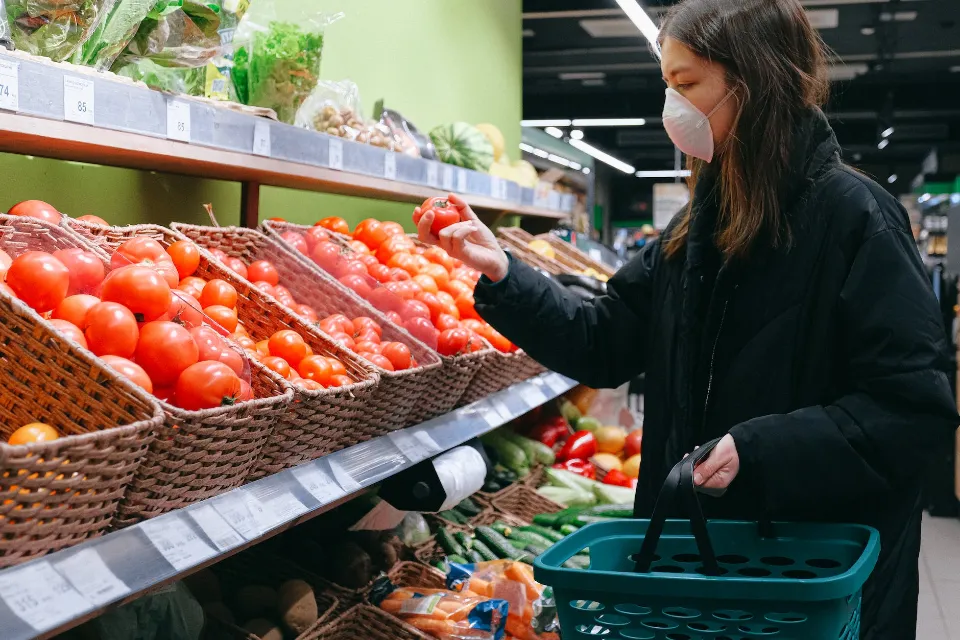The risk of COVID-19 persists despite the widespread distribution of coronavirus vaccines and boosters to older adults over the past few years. Seniors are at the highest risk of contracting a virus due to the emergence of new strains and the coming of winter.
If your elderly person or family member has been diagnosed with COVID-19 or is experiencing symptoms of COVID-19, there is much you can do to help, whether you live nearby or not.
This article’s advice on how to support the person you care about while also looking after yourself is precise and easy to understand.
Read more: How To Treat Elderly With Covid-19 At Home: 7 Tips – Elder VIP
What is COVID?
The new disease COVID-19, also known as the “coronavirus,” which causes respiratory infections, first appeared in 2019.
Fever, fatigue, and a dry cough are the most typical signs of COVID-19. Aches and pains, nasal congestion, a runny nose, a sore throat, or diarrhea may all be present in some people. These symptoms are usually mild and begin gradually. A major sign that someone is getting sicker is having trouble breathing.
Even though they don’t exhibit any symptoms or feel ill, some infected individuals may still be contagious. 80% of COVID-19 survivors bounce back without the need for additional care. The likelihood that someone will become seriously ill and have breathing problems is about one in six.
Age and pre-existing medical conditions, such as high blood pressure, heart issues, diabetes, or respiratory issues, increase the risk of COVID-19-related serious illness and mortality.

COVID-19 is spread by infected individuals. Small droplets from the mouth or nose act as the primary means of disease transmission. When a virus-carrying person coughs or sneezes, these are most commonly spread.
What to Do If Elderly Parents Get Covid?
Staying With the Elderly
It is crucial that you take preventative measures if you live with your elderly parent and they become infected with COVID-19 so that the virus doesn’t spread to you or to other family members. Here are some suggestions on how you can help your parent at home.
Follow Medical Advice
A physician will probably give you detailed instructions on how to care for your loved one if the elderly have a positive COVID-19 diagnosis. This might entail seclusion, the use of personal protective equipment (PPE), and additional instructions. Always follow the doctor’s recommendations first and foremost.
Maintain Environmental Hygiene
You must set up a separate environment for your parent if you want to keep both yourself and your loved one safe. They should feel at ease in this area and have access to any amenities they might require, such as a bed and a bathroom. Keep your parent’s interactions with family members to a minimum and, when practical, follow social distancing rules. The potential for virus spread can be decreased by keeping your loved one isolated inside the house.
Even if your parent has been confined to a particular room in the house, you must frequently sanitize and disinfect surfaces when taking care of the elderly at home. Studies have shown that the virus can survive for a few hours in the air and on hard surfaces within the home. Tables, doorknobs, light switches, countertops, and more are typical surfaces that need to be cleaned.
Wash Your Hands Regularly
Even if you are not the one providing your parent with care directly, you should frequently wash your hands. Make sure to wash your hands for at least 20 seconds, scrubbing all the way around your nails and in between your fingers. Try to wash your hands if you have come into direct or indirect contact with your loved one and wash your hands before eating or touching your face.
Not Staying With the Elderly
Not all of us have the chance to live with our parents and help them as they age. There are still things you can do to support your loved one if they contract COVID-19 and you are unable to be with them.
Stay Connected
As your elderly parent battles the virus, you can stay connected with them and those caring for them. You can be involved in their care even if you aren’t physically present. This is simple at Caring Senior Service thanks to our Tendio Family Portal. You can look over visit notes, see care plans, and stay informed about your parent’s health.
If your parents are feeling up to it, you can also give them a call. They might feel better and recover more quickly if they can talk to you on the phone or through video chat. Holding regular family meetings during this time may be something you want to do in addition to including the rest of your family.
Hire Professional Caregivers
We advise hiring a professional caregiver to make sure that the elderly receive the individualized care and attention they require to recover. This person can assist in treating your loved ones while following infection control regulations. A qualified caregiver ought to be able to offer all the services that you would offer your loved one if you were present, including laundry, cleaning, meals, company, etc.
All of our caregivers at Caring Senior Service are tested for COVID-19 and have received specialized training in providing care for clients who have contagious diseases and infections. You can feel more at ease knowing that your parent is getting the care they require if there is a qualified caregiver present in the home.
Let Their Friends Know
A great way to make sure that other people are aware of your elderly parent’s COVID-19 and can help to ensure that other people are checking in too is to let them know that your parent has it if they are close friends.
A reminder to wear a mask, etc., if they decide to visit while your parent is ill will also be provided by letting their friends know.
Focus on the Mental Health of the Elderly With COVID
- Please make sure to encourage the person to discuss any fears given the difficult and potentially anxiety-inducing situation of the COVID-19 pandemic. Listen, reassure, comfort and try to maintain a positive attitude
- Do some physical exercise together. Although you won’t be able to go out, try to stay physically active with some light exercise around the house
- You could try and to practice relaxation and mindfulness together
- Encourage mental stimulation. Reminiscence therapy is effective, and it can be used to look at photos or other personal items like old newspapers or magazines, letters, or postcards, as well as to listen to music or talk about meaningful objects. This can help to reactivate family memories and can be reassuring
- Do some light activity together, such as taking care of plants or animals
- You could also think about using your time together to learn something new, for example, a new handicraft
- Try to ensure the person you are caring for can enjoy some fresh air, in the garden or through the window
Final Thoughts
Find out if there is a way for the elderly person you are caring for to avoid going to a medical facility, such as by asking a health care provider to visit them at home or by calling for counseling, if they require medical help or advice that is unrelated to COVID-19. It’s critical to think about the elderly people you’re taking care of during this trying time, both their physical and mental health. Many people will feel anxious and stressed about what is happening and the restrictions imposed. Keep an eye out for any indications that the person in your care may be experiencing mental health issues. Are they feeling sad, withdrawn, anxious or confused? Try to be supportive and encouraging, and when necessary, ask for assistance.



